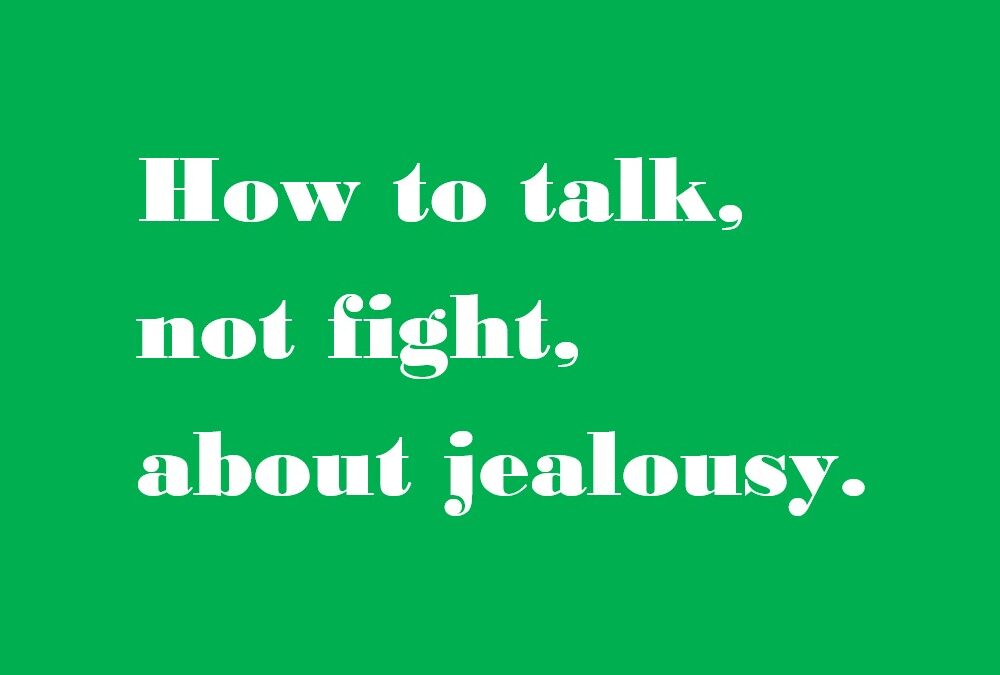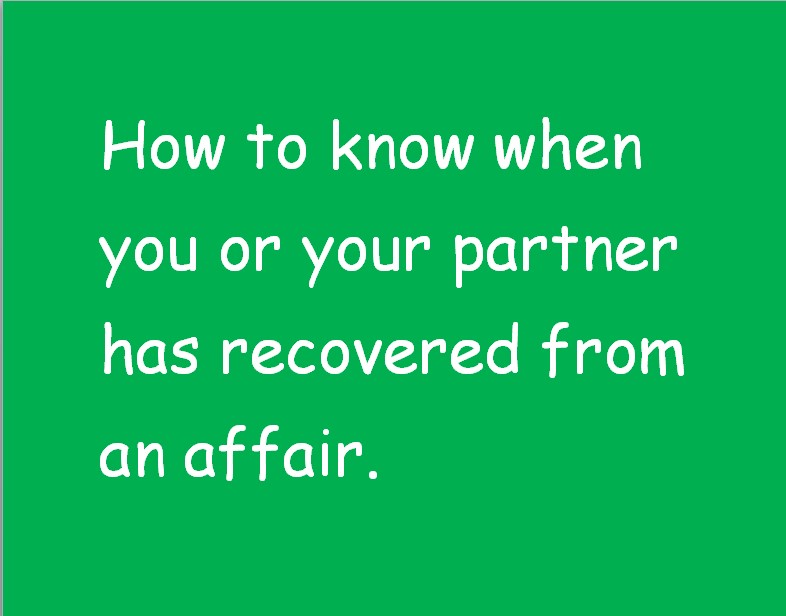
by Rev. Michael Heath | Feb 2, 2021
With Valentine’s Day just around the corner, our attention naturally turns to thoughts of love and romance. Ironically, despite all of the media hype advertisers place on it, many folks (especially women) report that real romance is in short supply in their relationships. The stress and restrictions imposed by COVID-19 have made matters even worse. That said, now is a good time to talk about romance and desire because there is good news for folks who want to rekindle their passion.
Kissing is one of the most often overlooked and undervalued gestures which will evoke romantic feelings between lovers. While couples report that they still kiss, they also report that kissing often has become almost perfunctory and has lost a lot of its pizazz. This observation leads us to the title of this blog post: The Five Second Kiss.
Doing more kissing for at least five seconds is a simple change that couples can do which will increase the amount of romance ( and mostly likely sex) in their relationship. Once you give this a try, you will be amazed what a big difference such a simple thing like taking a little longer to kiss makes. It’s also great to learn that, for healthy relationships, even though romance has been neglected in the past, it’s never too late to get it back. If you have a romance deficit and want to improve but aren’t sure what to do or feel a little awkward getting started , know that breaking the ice is the hardest part. Here are some tips to help you get started.

by Rev. Michael Heath | Jan 26, 2021
As we head toward the last week in January, it is important to realize that it is not too late to think about new year’s resolutions and deciding to make important changes and improvements in your life. You know, things like losing weight, exercising more, not smoking and cutting down on drinking.
Sadly however, despite good intentions, many have trouble carrying through with their plans and are unable to achieve their goals.
Fortunately, there are things that one can do to improve one’s chances of succeeding. Specifically, Baby Steps is an excellent alternative to all or nothing thinking when trying to make life changes.

by Rev. Michael Heath | Jan 13, 2021
In the wake of news reports about the recent assault on the Capitol, many have been pushed to edge of their limits to cope. The level of violence and the intensity of the anger displayed in the videos reveals a shocking and dangerous segment of America which causes many to wonder if the center can hold.
In troubling times such as these, people throughout the ages have turned to prayer for emotional and spiritual support. For many in this science dominated world, however, the idea of praying to a god is archaic and has lost its meaning and power.
Some falsely believe that one needs to be “religious” to experience the power of prayer. I disagree. I firmly believe that the need to call out to the divine in times of distress is imprinted in our DNA regardless of one’s religious beliefs or lack thereof. Even those who are technologically advanced seem to possess a spiritual longing for transcendent meaning and reality. This fundamental curiosity and need for comfort and reassurance is deeply imbedded in human nature.
That said, prayer may have many meanings and forms. Prayer does not necessarily have to be conceived of as praying to a man with a long white beard who sits on a throne. Indeed, reality of the divine may be experienced in many ways just as the practice of prayer has many forms. Personally, psychology has been a powerful alternative to literalism which makes prayer meaningful for me. For many, psychology is the Rosetta Stone which translates eternal spiritual concepts into contemporaneously meaningful ideas and truths. Let me explain:

by Rev. Michael Heath | Jan 3, 2021
As we begin a new year, rather than talk about resolutions and tips for keeping them as I have done over the past many years, I decided to do something different. Upon turning 72 today, I decided to celebrate by sharing some new and truly significant research with you (especially for those older folks like me) about how to keep your brain young and to fight off dementia.
My inspiration and source for this segment is CNN’s chief medical consultant and neurosurgeon Sanjay Gupta, M.D. and his new book Keeping Sharp . In it, Dr. Gupta provides not only a concise summary of practical information of how to stay mentally sharp but also offers new data which suggests lifestyle changes which can help fend off dementia and even reverse some of its effects. Here is a summary that I hope will get your new year off to a great start . Happy New Year !

by Rev. Michael Heath | Dec 15, 2020
Where to begin ? 2020 has been an absolutely horrible year for so many with increased social and racial tensions, violence, economic ruin, sickness and death all under the never ending threat of the COVID virus. Indeed, these have been depressing times. Worse, the unexpectedly long duration of this plague has worn down the our resolve and exhausted our energy and dampened the joy of the holiday for many . This year depression is not simply a clinical diagnosis. For many it is a daily reality.
Nonetheless, the end of the year has brought signs of hope. We have new president who acknowledges the reality of the viral threat and is committed to waging a vigorous and unified attack against the disease. Most importantly, the arrival of effective vaccines will mean that the end of the devastation and death is in the foreseeable future.
Whether you suffer from depression which pre-existed COVID or whether life over the past few months has simply become too much, here are some tips to help you cope with the holidays and make it to the new year:

by Rev. Michael Heath | Dec 3, 2020
While good communications and the ability to talk to one another is the cornerstone of solid marriages and relationships, one issue which has proven to challenge even the best communicators is jealously. Jealousy is the green demon which exacerbates self-doubt about one’s own value and increases suspicion and paranoia about the behavior of one’s mate. There is something in human nature which is inherently insecure and threatened by the reality or even the thought that one’s mate is interested in or attracted to another. Shakespeare’s Othello, for example, vividly depicts how jealousy can torture an individual and poison an intimate relationship.
It is important to understand that jealousy stems from the fear of losing love . Likewise, the grim statistics regarding infidelity are real. However, exaggerated fears can result from bad past experience which can create a hyper-sensitivity or an emotional allergy to the issue. These pre-existent worries can result in over-reactions and corrupt our ability to rationally discern and tell the difference between a real threat and an irrational fear. Likewise hypersensitivities from the past can make getting over past relational problems more difficult. Thus, one way for couples to learn to calmly talk about situations which involve jealousy is for both to be aware of and realize how past bad experiences can impair one’s ability to be reasonable in the present.
So here is the dilemma: On one hand, the best way to keep jealous feelings from getting out of hand is to talk about and reality test them with one’s mate. On the other hand, unfortunately, these conversations can be so emotionally radioactive that they often result in arguments and fights. Fortunately, there are some simple steps which can help couples to discuss jealous feelings rationally and reduce painful worries and recriminations. Take a look:

by Rev. Michael Heath | Nov 15, 2020
One of the most commonly heard laments when working with couples who have survived an affair is: ” Why can’t you just get over it and move on ?”
While the comment is usually made by the offender who is frustrated that his/her mate still brings up what s/he has done, the remark also raises a good question to which many folks don’t know the answer. So, today let’s talk about what has to happen emotionally for one to “get over” and “move on” from betrayal and how one can tell when it has happened.

by Rev. Michael Heath | Oct 31, 2020
This year Halloween arrived just as the coronavirus pandemic is surging across America, again. This ironic coincidence of spooks and a deadly virus provides an opportunity for us to discuss the interesting but confusing paradox in the human psyche which allows us to fear that which is not real and to deny that which is really threatening or dangerous.
On one hand, we celebrate and enjoy horror movies and other things which can scare us temporarily. Yet , as we have seen in the popularity of Donald Trump and his attack on science and the refusal of so many to wear masks and take reasonable precautions to prevent contracting or spreading the coronavirus, many Americans deny the reality and the severity of COVID-19. Although counter-intuitive, psychology can explain, at least in part , why this strange contradiction is so.
To begin, let’s understand why we love scary things like movies and Halloween. When we are scared, our brain releases dopamine which gives us a rush. The neurochemical reaction is emotionally stimulating and similar to the terror response caused by a real threat or crisis. However, horror movie thrills are significantly different from the experience of actual danger because the rational part of our brain knows that the scary perception isn’t real. This enjoyment is the same sensation we feel when riding on a roller coaster or in other thrill seeking activities. We like it because it is exciting but down deep, we know that we are safe. We know that we are safe because our neo-cortex , the part of the brain which is rational, assess the situation to be safe.
On the other hand, sometimes we tend to deny real threats when they are overwhelming, and feel out of control. We become overwhelmed when there is a real threat confronting us and don’t know how to handle the dangerous situation or to feel safe. Neurologically, to make matters worse, the panic which comes from being emotionally overwhelmed causes the amygdale , the hypervigilant part of the brain which constantly looks for threats, to hi-jack and block access to the logical part of our brain which, in the case of a real threat, would cause us to take reasonable action.
In some cases, fear causes us to become angry and attack the threat. In other cases, it causes us to run away. Denial or disbelief is a type of emotional running away which gives us some emotional space to avoid having to deal with or engage the problem before we are ready. If, however, access to the cortex is not re-established in time ,denial can complicate or make it impossible to respond effectively to the crisis.
In practical and every day terms, we are often in denial. For example, we all are going to die and that is , at some level, a real threat. That said, if we are healthy or don’t suffer from hypochondriasis, we don’t think about it very often. Denial in that sense is not a problem. In fact, it allows us to live our lives with less worry. On the other hand, if our doctor tells us that we have a serious condition which needs treatment and we, despite many warnings chose to deny and avoid getting treatment , the results could be catastrophic.
Fortunately, there are effective techniques to help us to sort out and and identify irrational fears and problematic denial from normal avoidance. Here are three basic steps to follow when fear and denial has blocked access to your neo-cortex:

by Rev. Michael Heath | Oct 17, 2020
October is World Mental Health Month and, as such, I want to address what I regard as a neglected but, nonetheless, a significant obstacle to emotional wellness and overall mental health: erroneous guilt and shame associated with sex.
As a pastoral counselor who has helped folks deal with a wide variety of emotional issues and conflicts over the years, I have witnessed many individuals and couples with this problem. While there are multiple factors which have created this difficult experience, it is indeed ironic that traditional church attitudes and teachings about sex are largely responsible for so much of the unnecessary guilt and emotional pain experienced by so many , especially by Christian believers. To be clear, I believe that much of the problem stems from Christianity’s fundamental discomfort with and ignorance about sex.
Despite the many decades of progress made by our society in the areas of human rights and social justice, our cultural and especially religious attitudes about sex have remained mired in myth and false ideas. It is amazing to me to realize how many folks are influenced by archaic views about sex and are tormented because of them.
Frankly, the way many clerics ignore science and pervert biblical teachings about sex constitutes theological or spiritual malpractice . The extent to which they have condemned as sinful, normal sexual feelings and practices is nothing less than abusive and ethically reprehensible. Instead uplifting and promoting joy, understanding and love, many of the damning attitudes and scowling views have caused spiritual conflict and resulted in personal self-hatred and relational strife.
Fortunately, the damage done by such beliefs is not permanent and can be undone with combination of accurate information and supportive therapy. Today I want to review with you three of the most common , destructive and egregious errors found in traditional church teachings about sex:
________________________

by Rev. Michael Heath | Oct 1, 2020
Okay, let’s start with a little Rorschach test. What is the first thing that comes to mind when you hear the words sex and religion ? Not so good. Certainly not like cookies and milk. They just don’t go together very well.
From its inception, Christianity has never been comfortable with the topic of sex. It is important to remember that, when Christianity arose, Roman culture ‘s decadence was at its worst. It is understandable but unfortunate, that to escape its licentiousness, the early church fathers were unable to understand the spiritual aspects of human sexuality and totally separated it from faithful devotion.
Perhaps Christianity’s failure to integrate sexuality into its theology and deal with it realistically was due in part to its expectation of Christ’s imminent return. From that point of view, things concerning the body would be of little concern. However, St. Paul’s discomfort with sex seems to go beyond that. His writings about sex and women are suspect and reveal that he was not actually comfortable with sex at all. For example, he preferred celibacy and only recommended marriage as a way to prevent sexual immorality and deal with sexual desire. (1Cor 7)
For whatever reason, subsequent leaders of the church were never able to fully embrace sexuality in a healthy way. As comedian George Carlin once quipped, the sacrament of marriage was never really able to transform something which was regarded as “dirty” or disgusting into something divine. Sex was largely appreciated for being a means to the end of creating children. (Thomas Aquinas) Little effort was spent extolling the sheer joy of the experience. Worse, church doctrine tended to take natural human curiosity and interest about sex and normal physiological impulses like masturbation, and turn them into mortal sins e.g. having impure thoughts or self-abuse. Indeed, throughout its history, the church has elevated celibacy and sexual purity as the most virtuous and godly state.
I reflect on Christianity’s negative bias against sex in the past because, I, as a pastoral counselor , see the pain caused by religiously induced guilt and shame over sex. Today, the omnipresence of sex in our culture (in advertising and through internet pornography) heightens the conflict. Without positive alternatives to offer, the traditional emphasis on sexual purity is psychologically abusive. The conservative messages are abusive because they give the impression that normal sexual impulses are evil or sinful desires.
Instead of helping folks learn to how to morally and responsibility navigate the choppy waters of the sexual environment found in modern life, the emphasis on purity simply preaches avoidance and condemnation. This attitude exposes the fundamental inability of some churches to understand that sex is not the enemy of faith . Likewise, these beliefs are oblivious to the fact that human sexuality is a vital aspect of a spiritually and psychologically healthy person.
Over the years, the physical abuse of children by clergy has been a terrible reality for many people. Beyond the physical abuse, however, it is clear that the guilt and shame created by ignorant and phobic attitudes towards sex and sexual diversity is an even more extensive and pervasive problem which has been often minimized or ignored.










